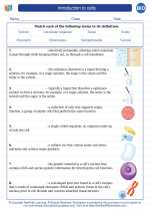Denitrification
Denitrification is a microbial process that converts nitrates (NO3-) into nitrogen gas (N2) or nitrous oxide (N2O). This process occurs in anaerobic conditions, where there is a lack of oxygen. Denitrifying bacteria play a crucial role in the nitrogen cycle by returning nitrogen gas to the atmosphere, thus completing the cycle.
Key Points to Remember:
- Denitrification is a microbial process.
- It occurs in anaerobic conditions.
- Nitrates are converted into nitrogen gas or nitrous oxide.
- Denitrifying bacteria are responsible for this process.
Study Guide:
1. What is denitrification?
Denitrification is the process by which nitrates are converted into nitrogen gas or nitrous oxide by denitrifying bacteria in anaerobic conditions.
2. Where does denitrification occur?
Denitrification occurs in environments with little to no oxygen, such as waterlogged soils, sediments, and the bottom of lakes and oceans.
3. Why is denitrification important in the nitrogen cycle?
Denitrification is important because it returns nitrogen gas to the atmosphere, completing the nitrogen cycle and regulating the availability of nitrogen for plants and other organisms.
4. What are the end products of denitrification?
The end products of denitrification are nitrogen gas (N2) and nitrous oxide (N2O).
5. How do denitrifying bacteria contribute to denitrification?
Denitrifying bacteria possess the enzymes necessary to carry out the denitrification process, converting nitrates into nitrogen gas or nitrous oxide.
Remember to review these key points and concepts to gain a thorough understanding of denitrification.
.◂Biology Worksheets and Study Guides High School. Introduction to cells
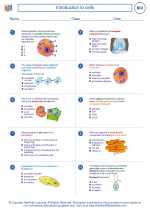
 Worksheet/Answer key
Worksheet/Answer key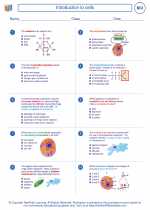
 Worksheet/Answer key
Worksheet/Answer key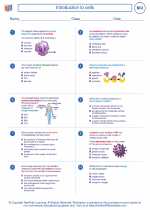
 Vocabulary/Answer key
Vocabulary/Answer key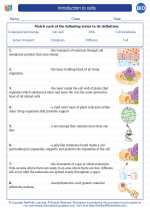
 Vocabulary/Answer key
Vocabulary/Answer key
 Vocabulary/Answer key
Vocabulary/Answer key
 Vocabulary/Answer key
Vocabulary/Answer key